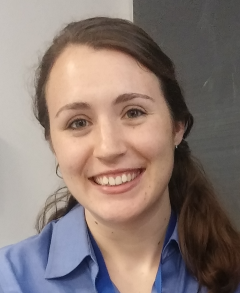On Thursday, June 22, 2017 CFICE presented Easy to Read, Easy to Use: How to write about your work in words everyone will understand. The webinar presenters, Nicole Bedford and Carly Foubert, walked attendees through the basics of plain language writing, from what it is and isn’t, to tips and pointers for plain language writing. Designed for a beginner audience, the webinar touched on the following agenda items:
- What is plain language writing?
- Why is it important?
- How do I write in plain language?
- Where can I find additional resources?
- Conclusions
If you missed out on the day-of presentation, have no fear. We’ve made it accessible below. You can also check out the resources our presenters shared below!
Resources:
Access a PDF copy of the webinar slides.
Access an MS Word copy of CFICE’s Plain Language Editing Checklist.
Access an MS Word copy of CFICE’s Perfect Blog Post Template.
Access an MS Word copy of CFICE’s Target Audience Template.
Access a PDF copy of the webinar resource list.
Check out our How-To Video on Plain Language writing too (includes additional download with Readability Statistics instructions at the bottom of the post).
Presenters:
 Nicole Bedford has worked in the field of communications for over 10 years. During this time, she has honed her ability to write clearly for many different audiences. She applies this skill in her role as the Project Manager and Communications Coordinator of Community First: Impacts of Community Engagement (CFICE). In her free time, Nicole enjoys playing improv games, shooting and editing films and promo videos, and solving the world’s problems over drinks with friends.
Nicole Bedford has worked in the field of communications for over 10 years. During this time, she has honed her ability to write clearly for many different audiences. She applies this skill in her role as the Project Manager and Communications Coordinator of Community First: Impacts of Community Engagement (CFICE). In her free time, Nicole enjoys playing improv games, shooting and editing films and promo videos, and solving the world’s problems over drinks with friends.
 Carly Foubert is the Communications Research Assistant for Community First: Impacts of Community Engagement (CFICE). Carly’s educational training is in Communications and Journalism. For the past two years, she has used her writing skills to share CFICE’s research through stories, podcasts and more. In her spare time, Carly enjoys skiing, reading, and visiting with family.
Carly Foubert is the Communications Research Assistant for Community First: Impacts of Community Engagement (CFICE). Carly’s educational training is in Communications and Journalism. For the past two years, she has used her writing skills to share CFICE’s research through stories, podcasts and more. In her spare time, Carly enjoys skiing, reading, and visiting with family.
 Katalin Koller has over eight years’ experience as a project manager in First Nations education, a sector where securing external funding, managing intricate partnerships, and creatively composing project ideas is not only a matter of success, but also of survival. Keenly interested in social and environmental justice, Katalin embraces a holistic perspective shaped by her time working at the Province of New Brunswick and more recently, as a collaborator to Mi’kmaq and Wolastoqey Nations in not-for-profit community development. After coming to Ottawa in 2013 and spurred by her passion for decolonizing education, she joined the Community First: Impacts of Community Engagement (CFICE) project as the Research Associate for the phase 2 working group Aligning Institutions for Community Impact (AICI). AICI’s mandate is to support institutional culture change in post-secondary education toward enhanced community-campus partnerships in the co-production of knowledge. Katalin is a PhD candidate in geography with a specialization in political economy at Carleton University, studying the geographies of cross-cultural reconciliation enacted in spaces of solidarity.
Katalin Koller has over eight years’ experience as a project manager in First Nations education, a sector where securing external funding, managing intricate partnerships, and creatively composing project ideas is not only a matter of success, but also of survival. Keenly interested in social and environmental justice, Katalin embraces a holistic perspective shaped by her time working at the Province of New Brunswick and more recently, as a collaborator to Mi’kmaq and Wolastoqey Nations in not-for-profit community development. After coming to Ottawa in 2013 and spurred by her passion for decolonizing education, she joined the Community First: Impacts of Community Engagement (CFICE) project as the Research Associate for the phase 2 working group Aligning Institutions for Community Impact (AICI). AICI’s mandate is to support institutional culture change in post-secondary education toward enhanced community-campus partnerships in the co-production of knowledge. Katalin is a PhD candidate in geography with a specialization in political economy at Carleton University, studying the geographies of cross-cultural reconciliation enacted in spaces of solidarity.